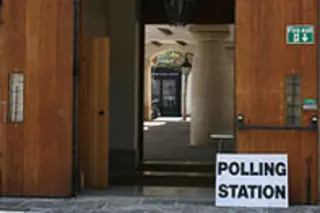People may think they're making up their own minds when they step into the voting booth on election day; they may think that the decision they make there is a product of careful reflection and personal values. But a new study suggests that voters may be swayed by the simplest factors, like the associations they have with the physical place where they vote. In the study, researchers showed that people who cast their votes in a school were more likely to support an education initiative.
"Seemingly innocuous factors can influence behavior," said Jonah Berger, assistant professor of marketing at the Wharton School of the University of Pennsylvania, and the study's lead author. "There is a connection between location and the thing people are voting on" [ABC News Medical Unit].
Researchers studied the votes case in Arizona for the 2000 general election, and looked specifically at a statewide vote on an ...














